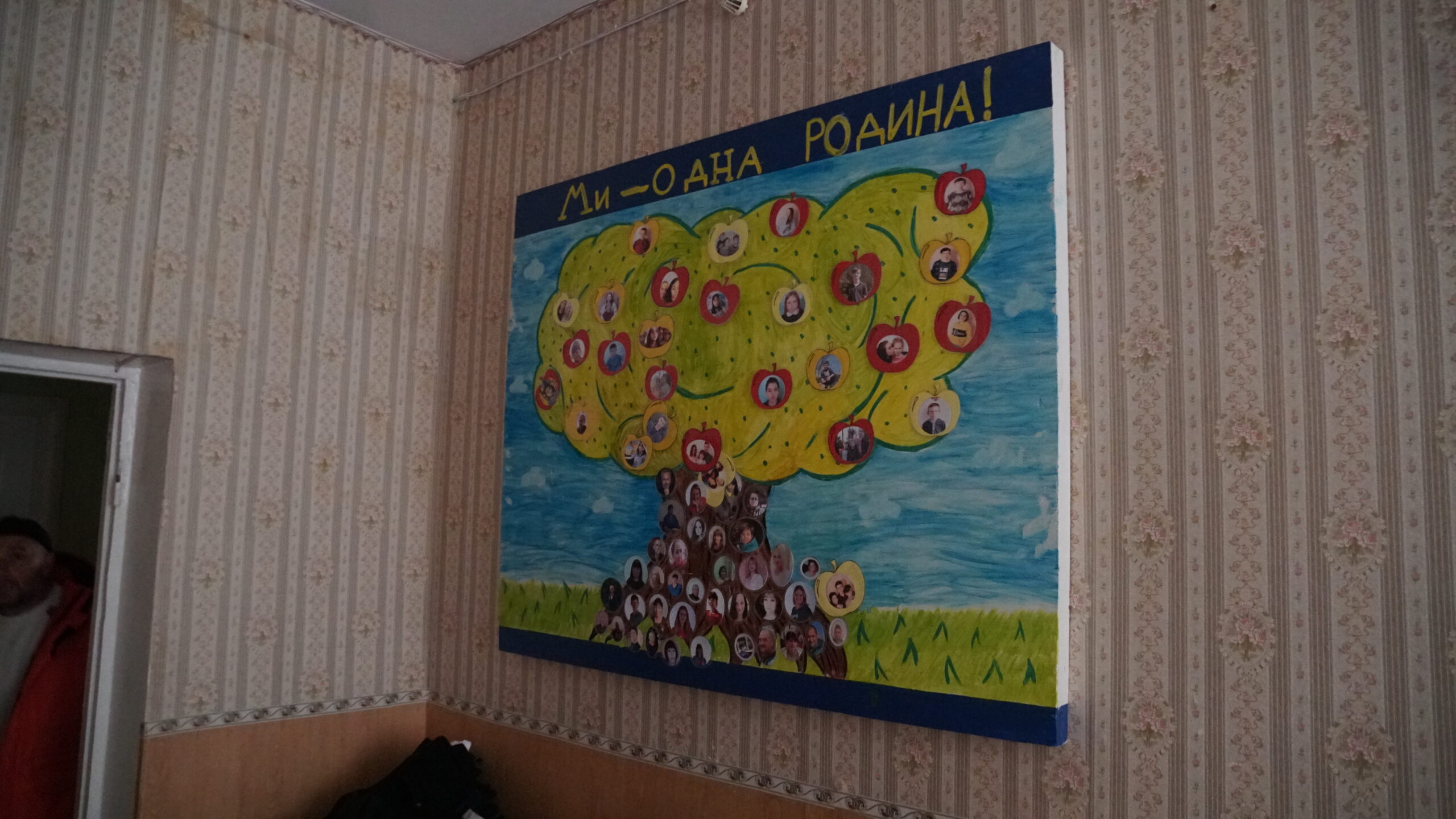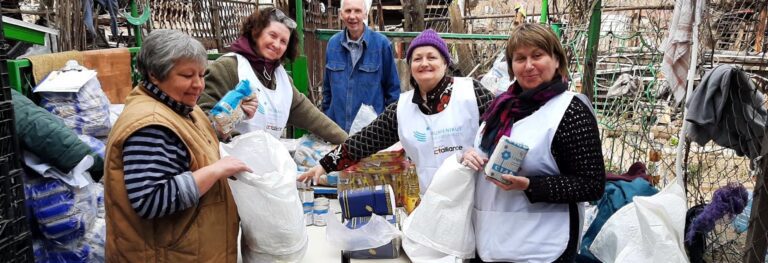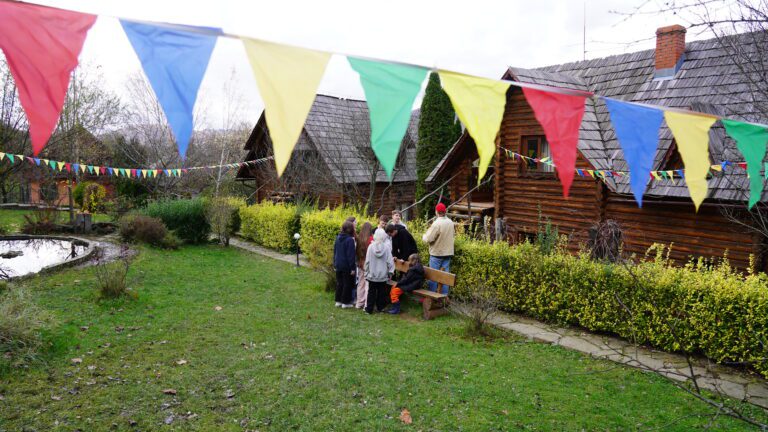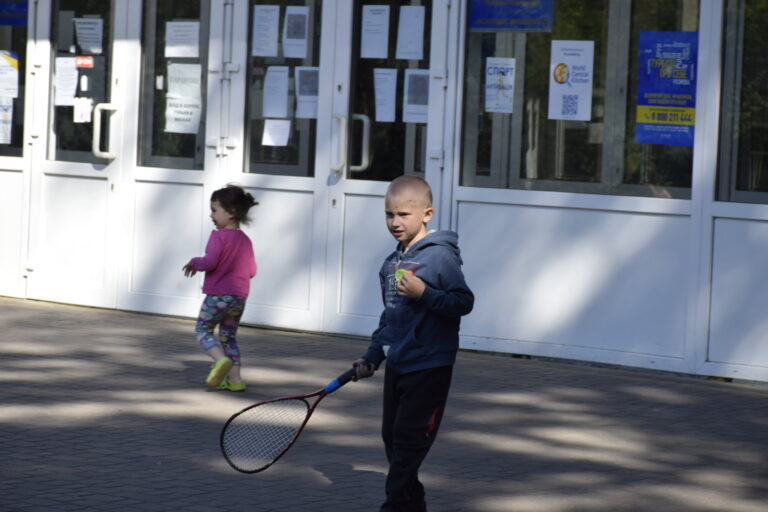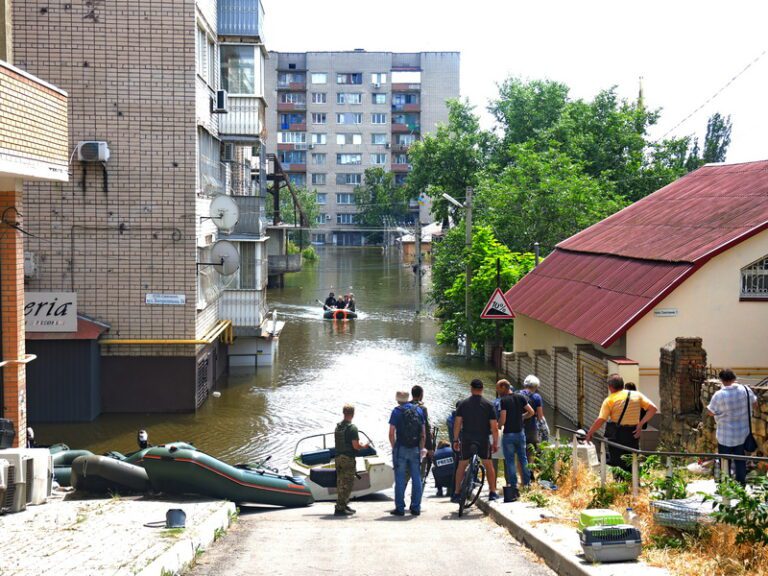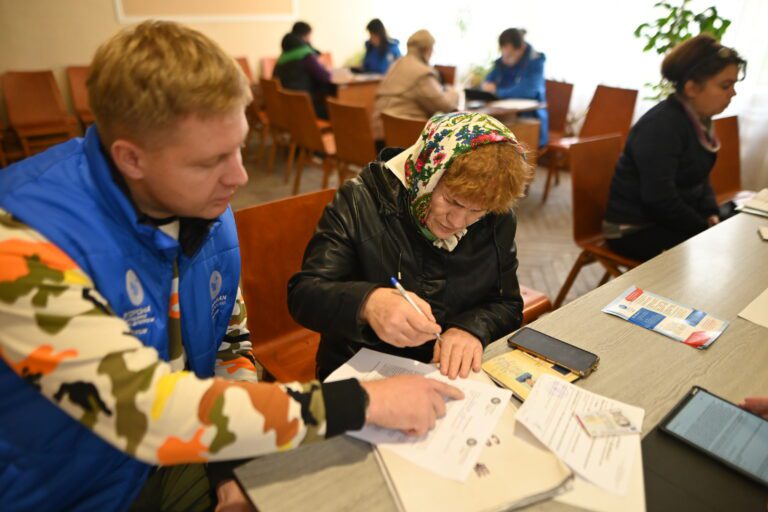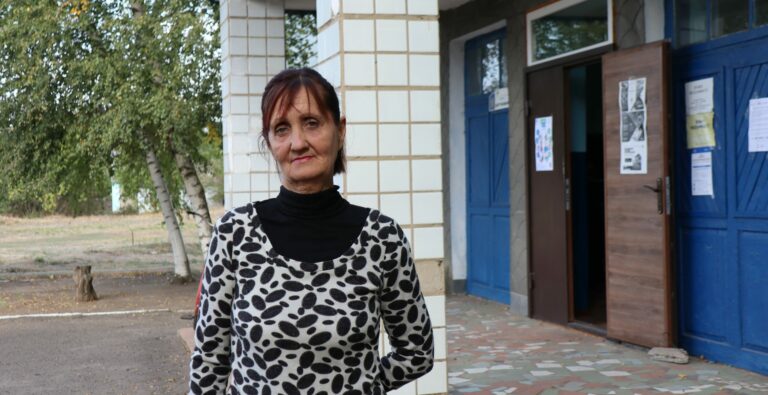The orphaned orphanage of Kherson
War tears apart families, sweeping through the most important aspect of life like a storm, preying on the most vulnerable. An orphanage in Kherson, home to fifty-two children and dozens of staff members, was no exception. The family tree symbolizing the bond between the inhabitants of the children’s home stands now as a memory of a better past and a hope for a better future to come. A beneficiary of Hungarian Interchurch Aid’s (HIA) humanitarian aid delivered to Kherson, the orphanage is preparing for the children’s return after they were forced to hide from Russian troops withdrawing from the port city in South Ukraine.
“When we understood that we could be brought to Russia, I called together our staff, and we had decided that we must hide the children,” remembers making the urgent decision Volodimir Sahaidak, the director of the children’s home.
The halls of the institution are cold and quiet. One can hardly believe it was once a place of safety, warmth and kindness.
Never in his life did Mr. Sahaidak face a more frightening situation when he first realized that withdrawing Russian troops were deporting children from Kherson to Russian territory under the pretext of “evacuation”.
Stories of people across Ukraine being deported to Russia have been circulating since the beginning of the war. Still, the director responsible for a hundred-strong family unrelated by blood never thought such a thing would threaten the children under his care.
There are many possible reasons why Russian forces kidnap children. Mr. Sahaidak wasn’t eager to find out which would apply to the children of the orphanage. With the staff, they hid the children at multiple locations, taking in their homes as many as they could or bringing them to temporary foster families, emptying the institution for the marauders to have nothing to find. The decision was made in the last weeks of occupation. The other eight months were not any easier.
Like Kherson itself, the institution was cut off from the outside world at the very beginning of the war. Like many others, the orphanage was not prepared for such a life-changing event. Without a reserve of canned food and financial support from state organs, it was left to fend for itself. Because of Russian checkpoints everywhere and the gradually increasing repression, many staff members could not even get to the institution. “There were times when there were just three adults here, counting me,” says Mr. Sahaidak. “But the children took responsibility. They took care of each other and helped in every possible way, growing up in a blink of an eye,” he adds.
The orphanage had no food reserves, no canned food. Locals who stayed under occupation helped to provide for the children by bringing food and other necessities they could spare.
Liberation, however, came with a price. The Russian forces cut Kherson off from electricity, water and heating and have been increasing their artillery strikes on the city from the other bank of the River Dnieper. The institution is doing everything in its power to restore power so that, in due time, the children can return to suitable conditions.
HIA’s humanitarian aid serves this very purpose. The food and hygiene items help the orphanage build up a reserve to provide for the children and the staff in a town where most inhabitants rely on humanitarian aid.
“It is still better now than under occupation. We are free,” exclaims one of the staff members sorting the humanitarian aid. The management of the children’s home is convinced that with continuous support from aid groups and with the diligent work of the orphanage staff, the institution can welcome back the children to celebrate the holidays together as one big family.

